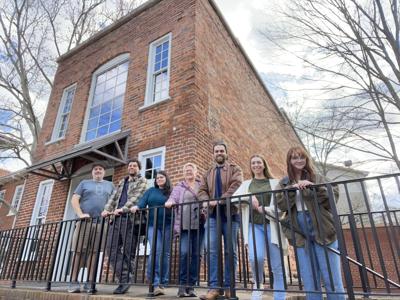The Athens Film Project, led by affiliates of the Athens Historical Society, has worked alongside UGA graduate students and professors to create short films for use in Athens area schools to show what historical events were like in the city.
Two past board members of the Athens Historical Society, Cindy Hahamovitch and Peggy Galis, teamed up with Athens-Clarke County school teachers to figure out a way they could pair an interesting local story with a historical time period or event.
Galis, a long-time Athens resident, said the teachers expressed an interest in the project but estimated that they have as little as “five minutes left over” in their schedules after teaching the state and national curriculums required..
“What we wanted to do is just fit in [their schedules] if we could… five minutes just made me think, ‘Well, a film,’” Galis said.
Hahamovitch, a history professor at the university, and Galis worked with Jane McPherson, a professor at the university’s School of Social Work at the university, who brought historical film expertise to the committee.
Hahamovitch said that she hoped that the three of them could create films that a younger crowd would find appealing, unlike the average slower-paced documentaries geared towards an older crowd.
The committee has completed two films, the first which focuses on the Knox Institute and the second on emancipation in Athens. The committee is currently working on other films about reconstruction, industrial Athens, indigenous people and the founding of Athens.
Since the project was delayed by the pandemic, the crew is just now in the process of making a third film. Galis said she imagines the timeline for the next film to be about two years, considering having to coordinate with students and all the scripts and images that must be edited and processed.
Galis said that the unique things about the films created are that they align with the short, concise type of media that students are consuming today and that they strive to have a young and diverse set of narrators, which she said the students have enjoyed.
The benefit of the films, according to Galis, is that they have longevity for teachers to use them for many years to come. The Athens Film Project has raised $100,000, allowing for a budget of up to 12 films, and they could soon apply for national grants.
Megan McPherson, a board member of the Athens Historical Society, said most of the donations the society has received recently have been for the film project specifically. McPherson runs the social media pages for the AHS and said the films have been getting “a lot of attention.”
Galis attributes this financial success to the generosity of the local community: she said that if she lived elsewhere it would be much harder because of all the “remarkable people at the university.”
As a PhD student at UGA, Bryant Barnes said he’s become accustomed to writing for academic and professional audiences, so serving the project as a researcher and writer was right up his alley. Barnes said that he has found it to be as a unique experience as challenging, since he has never studied Athens history or written for a younger audience.
“All academics have an idea that they want to write for popular audiences, but it's easier said than done,” Barnes said. “It's been kind of an interesting process learning how to write for a high school audience.”
In order to ensure the success of the films with a younger audience, Galis said that a student committee watched the films before they aired to tell the group what they “like about them, what they don’t like about them.”
Barnes said this project illustrates how academics can change to reach students in new ways while telling “difficult history in an accessible way.
“I think more professional academic historians should be having these collaborative projects with more high schools, and really, especially in the context of [the] attack on education, especially when it comes to race and privilege and power,” Barnes said.


